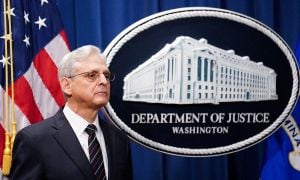The stakes are sky-high as SpaceX gears up for another test flight of its ambitious Starship rocket, just as Elon Musk and Donald Trump find themselves back in the public eye together. This thrilling convergence of aerospace innovation and political drama has captured the attention of many, raising eyebrows and stirring conversations.
On November 19, 2024, the eyes of the world turned to Brownsville, Texas, as President-elect Donald Trump attended the launch of SpaceX's sixth test flight of Starship. This massive vehicle, intended to eventually carry humans to the Moon, Mars, and beyond, embodies Musk’s vision of making interplanetary travel possible. The launch followed months of rigorous development and testing, which are hallmarks of SpaceX’s operational style.
Elon Musk, known for his sometimes controversial and sometimes visionary business approaches, has long faced scrutiny, both for his management style and for the broader impacts of his ventures on society. Critics have voiced concerns about workplace safety and labor practices at SpaceX, pointing to reports alleging inadequate safety measures and intimidation against workers voicing concerns. Yet, Musk's supporters argue his boldness is exactly what the innovative aerospace industry needs to push boundaries.
During the launch event, Trump took the opportunity to engage with Musk, discussing the importance of American manufacturing and the potential for SpaceX to play a pivotal role as human exploration continues to the stars. The pairing of Musk’s space exploration agenda with Trump’s agenda for economic revitalization and American manufacturing presents intriguing possibilities for collaboration.
But the celebration of advancements doesn't come without its controversies. Trump's previous administration saw significant tariff threats against goods imported from Canada and Mexico, which could potentially impact companies like SpaceX if their supply chains are disrupted. Automotive analyst assessments suggest the anticipated tariffs could jeopardize business operations for companies, with predictions highlighting General Motors preparing to import almost 750,000 vehicles from these countries.
Analysts and political experts point out the tangled web of decoupling U.S. economic interests from foreign production environments like Canada and Mexico will be challenging, especially when it involves major players like Musk and SpaceX. How might this political tension influence decisions at SpaceX and other domestic manufacturers? The answer could shape the next phase of American aerospace exploration.
Another point of contention surrounds the composition of government roles and appointments under Trump, especially as he publicly names individuals, including controversial figures, for key positions. Analysts stress the ramifications could trickle down, leveling impacts on industries reliant on government contracts for innovation and development. Building relationships between private enterprise and federal regulatory bodies will be more important than ever.
With Musk reportedly stating he feels "super bad" about the current state of the economy, the stakes are raised as the nation's challenges merge with the innovations at the forefront of space. He has maintained, through candid conversations, his optimism for tackling these hurdles head-on. Success for Musk at SpaceX depends as much on the federal government's stance as it does on engineering feats. Collaboration and regulation could either forge new paths or hinder progress.
SpaceX's ambitious plans for Starship include facilitating science, reducing costs of space travel, and supporting settlements on other planets. The rocket claims to be the most powerful ever built and aims to handle payloads far exceeding current vehicles' capabilities. These advancements may position the U.S. as the leader of the future of space exploration, but not without the chaotic interplay of political influences and industry pressure.
Returning to the earlier themes, it's important to understand the layered relationship between corporate giants and political frameworks. While Musk’s technological innovations push boundaries, Trump's economic decisions can create barriers. The balancing act might prove complex as both work hard to achieve their visions of America’s future.
Keeping pace with the developments surrounding the impending launch, industry insiders and the general public remain anxious to see how this partnership could evolve. The interplay between Trump and Musk is more than just about flashy rocket launches and bold proclamations; it’s about setting precedents and defining futures.
Challenges undoubtedly lie on the horizon. Monitoring 2025 developments for American enterprises as they navigate tariff uncertainties, potential regulatory changes, and shifting international relations is key. The fate of SpaceX is not disjointed from the economic policies being woven at the highest levels of government. This makes the coming months potentially transformative for both the space industry and the political climate.
These developments, fascinating on their own, also inspire broader dialogues about ambition and governance. Are corporations like SpaceX prepared to handle the increasing complexity of mixed political and economic realities? With the world watching, the culminated efforts of Musk, Trump, and their respective teams of innovators and policymakers will be examined under the glaring spotlight of public scrutiny.
What happens next could reverberate far beyond the confines of Texas or the bounds of Earth. The fast-moving pace of entrepreneurial innovation combined with the unpredictable nature of politics sets the stage for potential breakthroughs — or even dramatic setbacks. Musk's ventures may not only reach for the stars but could reshape how humanity views its role on this planet.



